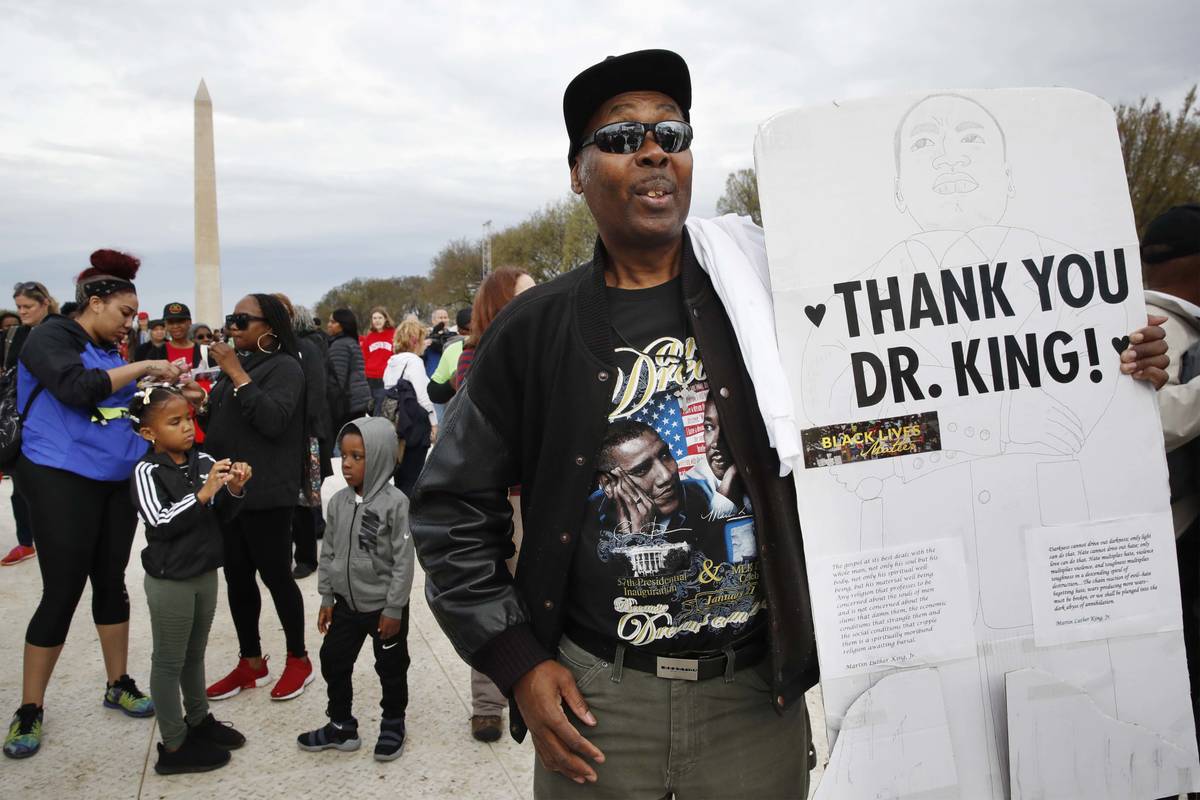NEVADA VIEWS: A difficult conversation
The Nevada Health Centers team of licensed clinical social workers meets once a week to talk about the issues we’re hearing from our patients and to give each other additional insight. It’s no surprise that race has been a big topic these past few weeks.
Our team has a couple of advantages in having this conversation. We’re all trained clinical social workers, a field many of us chose because we’re empathetic by nature. We’re racially and culturally diverse — our group includes people who are Black, white, Mexican and Cuban. We have taken advantage of this meeting time to discuss difficult topics. And here’s what I’ve concluded: Everyone benefits from these conversations. I do understand that discussing race can be incredibly uncomfortable — which is even more reason it needs to happen.
As those of us in the Black community have known for most of our lives, and others are learning first-hand in recent months, systemic racism is prevalent in this country — not only for us, but for most people of color. We appear to be at a turning point yet again where society is staring this issue of racial inequality and injustice full in the face. And once again we appear to be ready to do something about it.
Here are just a few of the ideas we came up with to help us and hopefully others continue this conversation in a healthful way:
■ Seek out diverse opinions. Even the most empathetic person cannot understand what someone of another race experiences on a regular basis. If you’re not in a position to have these conversations, seek out TV shows, movies, podcasts and books that can give you insight into race matters. That might even make it easier for you to diversify your own personal circles. If you have questions for your Black friends and others of color, and you don’t know if it’s appropriate to discuss them, ask them. Everyone is different and will have different reactions and responses.
■ Educate yourself on race issues using legitimate sources. Social media make it too easy to share incorrect information, much of which is designed to inflame passions and cause discord. Read books and articles and research the authors to better understand their biases. Some of the more popular sources to consider include the books “How to be an Antiracist” by Ibram X. Kendi and “White Fragility” by Robin DiAngelo and documentaries such as the “The 13th Amendment” and “Black Wall Street.”
■ If you’d like to share what you learn, please do so in a calm, understanding way. Listen to the people you’re talking to with an open mind and an equally open heart. It’s also important to take a break from all media, including the news and social media. It can sink you down at a time when it’s important to be present and accessible.
■ Do what you can and want to do to promote anti-racism and understand that this means different things to different people. For some, donating to anti-racist organizations is a positive step. For others, signing petitions or working phone banks helps them contribute. And for still others, it’s as simple as voting.
■ Make self-care a priority — read, meditate, exercise, talk to friends, whatever you use to center yourself. Consider talking to a mental health professional about better navigating through the barrage of emotions and thoughts that emerge from these conversations about race.
Respecting and learning about race matters — as well as other differences — creates the opportunity for amazing change for present and future generations. You’ll thank yourself for doing this important work.
Sandra Abdullah is a licensed clinical social worker and the director of behavioral health for Nevada Health Centers.




























